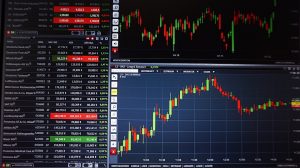By Moses Obajemu
The value of the foreign portfolio and direct investment in equities amounted to $9.48bn (N3.44tn) between June 2017 and June 2019.
Data obtained from the Securities and Exchange Commission on Wednesday showed that foreign direct investment in equities stood at $2.42bn (N878.45bn) while foreign portfolio investment in equities stood at $7.05bn (N2.56tn).
In the last nine months of 2017, the value of the FDI in equities stood at $769.34m (N273bn), while $1.03bn (N374bn) was recorded in 2018; and $465.56m (N169bn) in the first half of 2019.
The value of foreign portfolio investment in equities in the last nine months of 2017 stood at $3.54bn (N1.29tn).
In 2018, $2.36bn (N857.96bn) was recorded as the value of the FPI in equities while $1.15bn (N417.59bn) was recorded in the first half of 2019.
Data from Ernst and Young showed that the total FDI into Africa in 2018 stood at $75.5bn, while that of Nigeria stood at $8bn.
This means Nigeria accounted for 10.59 percent of the total amount of the FDI in Africa in 2018, making it the third-largest destination of the FDI inflow on the continent after Egypt and Algeria.
The value of the FDI invested in other sources aside from equities thus stood at $6.97bn, which was invested in 65 projects and created 10,000 jobs, according to the EY data.
The data said Africa’s FDI was dominated by services projects making, which made two-thirds of the total.
It noted that the services were majorly retail, financial services, telecoms, media, technology, business services and life sciences.
He said, “This speaks volumes about the perception gap that exists. An increase in intra-African trade would send a good signal that would address the perception gap people have about Africa.”
“Nigeria is a key investor into the rest of West Africa, with Morocco also a major player in the region. The key drivers of the FDI in Nigeria would be sound economic reform agendas, economic growth, market size and the ease of doing business.”
Wolfenden added that the FDI invested in the country was not creating a sufficient amount of jobs, compared to other countries.
He said the various governments in Africa were not doing enough to make it easy to do business on the continent, which was slowing down the FDI inflow.
Wolfenden stated that if more governments could be more deliberate in their economic reforms, they would become more attractive for the FDI, which would translate to faster economic growth.
The data from EY showed that Lagos State attracted the largest portion of Nigeria’s FDI with a score of 43.








